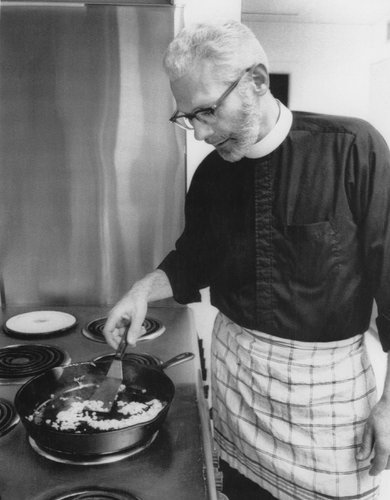Love creates beauty and truth
I ordered Supper of the Lamb last week, and Amazon told me it wasn’t supposed to get here until November, but it arrived today. I had no idea that he’d died, until I went searching for his photograph in order to post this:
The man who said “beauty is in the eye of the beholder” was on the right track, even if he seemed a bit weak on the objectivity of beauty. He may well have been a solipsist who doubted the reality of everything outside himself, or one of those skeptics who thinks that no valid judgments are possible, that no knife can in reality be pronounced sharp, or any custard done to perfection. It doesn’t matter. Like Caiaphas, he spoke better than he knew. The real world which he doubts is indeed the mother of loveliness, the womb and matrix in which it is conceived and nurtured; but the loving eye which he celebrates is the father of it. The graces of the world are the looks of a woman in love; without the woman they could not be there at all; but without her lover, they would not quicken into loveliness.
There, then, is the role of the amateur: to look the world back to grace. There, too, is the necessity of his work: his tribe must be in short supply; his job has gone begging. The world looks as if it has been left in the custody of a pack of trolls. Indeed, the whole distinction between art and trash, between food and garbage, depends on the presence or absence of the loving eye. Turn a statue over to a boor, and his boredom will break it to bits–witness the ruined monuments of antiquity. On the other hand, turn a shack over to a lover; for all its poverty, its lights and shadows warm a little, and its numbed surfaces prickle with feeling.
Or, conclusively, peel an orange. Do it lovingly–in perfect quarters like little boats, or in staggered exfoliations like a flat map of a round world, or in one long spiral, as my grandfather used to do. Nothing is more likely to become garbage than orange rind; but for as long as anyone looks at it in delight, it stands a million triumphant miles from the trash heap.
–Robert Farrar Capon, 1968, The Supper of the Lamb, a cookbook, among other things

Comments are currently closed.